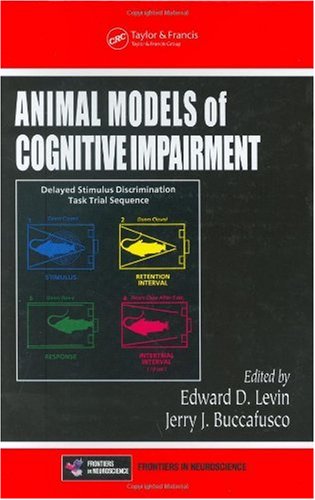

Most ebook files are in PDF format, so you can easily read them using various software such as Foxit Reader or directly on the Google Chrome browser.
Some ebook files are released by publishers in other formats such as .awz, .mobi, .epub, .fb2, etc. You may need to install specific software to read these formats on mobile/PC, such as Calibre.
Please read the tutorial at this link. https://ebooknice.com/page/post?id=faq
We offer FREE conversion to the popular formats you request; however, this may take some time. Therefore, right after payment, please email us, and we will try to provide the service as quickly as possible.
For some exceptional file formats or broken links (if any), please refrain from opening any disputes. Instead, email us first, and we will try to assist within a maximum of 6 hours.
EbookNice Team

Status:
Available4.6
25 reviewsFeaturing contributions from distinguished researchers in the field of cognitive therapy research, Animal Models of Cognitive Impairment examines some of the most popular and successful animal archetypes used in the context of drug discovery. It provides integrated coverage of the latest research concerning neuronal systems relevant to cognitive function and dysfunction, assimilating reviews of this research within the context of each chapter. This approach is unique in that it brings together molecular and neurochemical methodologies, behavioral applications in translational models, and clinical applications.
The book comprehensively discusses a wide variety of animal models of cognitive impairment, including genetic, lesion, pharmacological, and aging related impairments. It also explores the significance of this research in regards to the treatment of various addictions and disorders such as stroke, autism, Alzheimer’s, schizophrenia, and ADHD.
Edited by two renowned authorities in the field, Animal Models of Cognitive Impairment is a timely book that provides integrated coverage of cutting-edge research that concerns neuronal systems relevant to cognitive function and dysfunction.